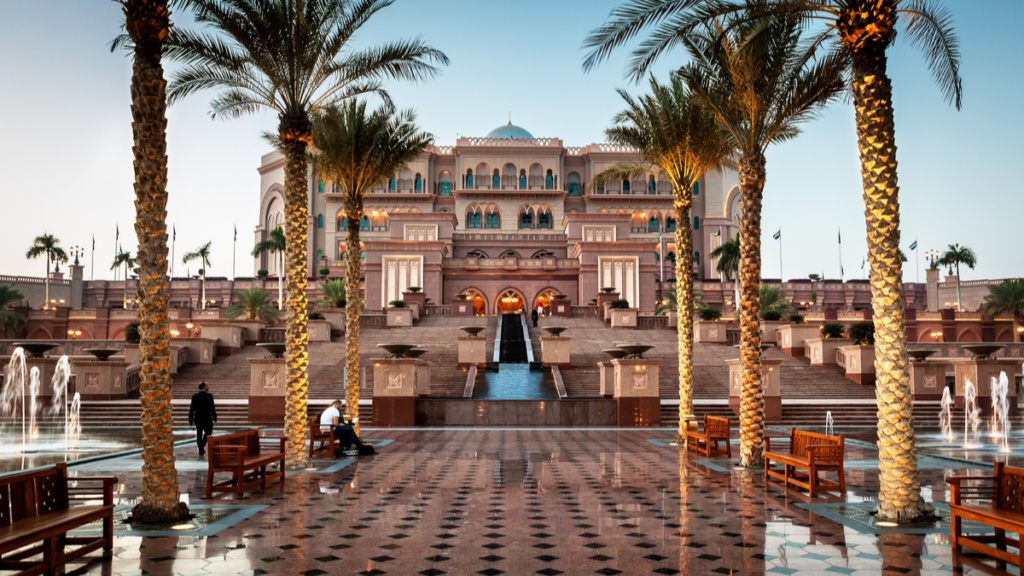The pandemic has changed the way we live, work and travel – perhaps forever. Our personal and professional lives have blended into one, with the remote work trend now here to stay, and we have become more aware of the importance of leading a balanced – and sustainable – lifestyle. Health, safety and hygiene awareness has also been heightened and we now expect contactless solutions when we transact.
In the Middle East, and in particular, the Gulf, pandemic-led consumer behaviours have forced the hospitality industry to re-imagine hotel concepts and offerings to meet revised guest expectations. Here’s my run-down on top transformative trends and movements the sector is facing – and embracing.
Community Spirit
Pre-pandemic, hotels were already making the transition to community hubs. Much more than a place to stay, properties are emerging as lifestyle hubs and enablers, with public spaces transformed into multi-purpose venues where guests can work, socialise, grab a coffee and more. Importantly, they are places to soak up local life. Cookie-cutter one-dimensional hotels with no sense of place are most definitely out and lively, immersive spaces with cultural and social connection are in.
The re-invention of space
Hoteliers are not only re-jigging public spaces, but in the face of challenging marketing conditions, looking to maximise revenue from their venues, from ballrooms to meeting rooms, in innovative ways. They are either transforming unused spaces into co-working areas, media studios, cinemas and similar, or hiring them out to third parties for a range of services, from physiotherapy clinics to veterinary services. If they’re not; they should be – and their guests and owners will thank them for it.
Safety comes first
The hotel industry has been quick to adopt world-class health and safety standards, with stringent cleaning, hygiene and social distancing measures in place, which guests now expect as standard. The next step is to put the hospitality back into hospitality, overcoming physical barriers to service (in the name of sanitisation) with new thoughtful human touches and authentic experiences that inspire emotional connection.
Contactless counts
Guests now demand seamless and contactless journeys and hotels are shifting to new digital tools, from QR code menus, to keyless room entry. The widespread use of facial recognition and biometrics should come next. Hotel hybrid meeting solutions are now a given.
Wellness wins
The pandemic has accelerated fitness and wellness trends and savvy hotels are providing much more than a gym and a spa. Communal gym and wellness spaces, in-room on-demand fitness videos, dedicated areas for group fitness and meditation, holistic programmes that prioritise sleep and jetlag recovery, plus immersive exercise activities that give visitors a chance to experience their destination, are all on the table. Some hotels are even improving their indoor air quality and using biophilia in architecture to improve guest wellbeing.
The remote work opportunity
With 50% of the world’s working population doing so from home and the rise of entrepreneurial digital nomads who prefer to work remotely, the popularity of ‘workations’ will only increase, as research commissioned by Reed Travel Exhibitions, the organiser of Arabian Travel Market (ATM), points out. A ‘workation’ surge is anticipated this year and beyond, with on-the-go executives, Gen Z singletons, millennial professionals, freelancers who earn a living from a laptop and even families with children under school age heading overseas, the research reveals. Add to that destinations like Dubai launching attractive virtual working programmes, and the opportunity for hotels to capitalise on remote worker demand is huge. Special long-stay packages including essentials like free Wi-Fi, F&B discounts and more are already being promoted.
No more token sustainability
It’s no longer sufficient to say you are environmentally friendly because you give guests the chance to re-use towels and bed linen. The pandemic has made consumers acutely aware of the impact they have on the planet when they travel or visit a destination and they are more often than not willing to pay more for hotels that give back to people and the planet. What ticks their boxes? Green buildings, carbon offsetting programmes, locally sourced products (from furnishings to food), produce grown on-site, waste, energy and water saving measures, and much more. Responsible hospitality is no longer negotiable.
Hospitality from the heart
Despite the unparalleled disruption caused by the pandemic, which has proved a catalyst for hotel industry evolution, some things remain constant. Great service, from the heart and with a smile, is worth its weight in gold.
All these topics and many more will be discussed at the ATM Hotel Industry Summit, which will take place live in Dubai and virtually in May. Don’t miss your chance to hear the summit’s line-up of hospitality leaders give their views on how the industry has changed and where it is heading. See you there!
